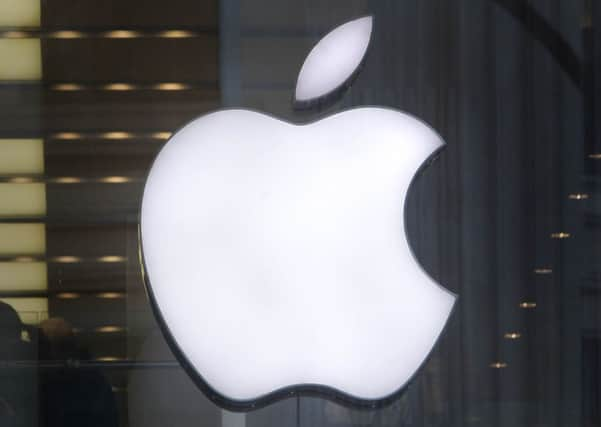Apple face huge bill after EU probe into Irish tax deal


In a landmark ruling following a three-year investigation, Competition Commissioner Margrethe Vestager said the maker of iPads and iPhones paid just 1 per cent tax on its European profits in 2003 and 0.005 per cent in 2014.
The Brussels watchdog found the arrangements dating back to the early 1990s were illegal under state aid rules and gave Apple favourable treatment over other businesses.
Advertisement
Hide AdAdvertisement
Hide AdMs Vestager said Apple was paying €50 in tax on every€1 million of profit it made in 2014.
Ireland’s finance minister Michael Noonan and Apple chief executive Tim Cook vowed to fight the verdict.
In a hard-hitting defence of its tax planning and corporate structure, Apple warned of the ramifications for future investment in Europe, where it employs 22,000 people.
“The European Commission has launched an effort to rewrite Apple’s history in Europe, ignore Ireland’s tax laws and up-end the international tax system in the process,” Apple said.
“The commission’s case is not about how much Apple pays in taxes, it’s about which government collects the money. It will have a profound and harmful effect on investment and job creation in Europe.
“Apple follows the law and pays all of the taxes we owe wherever we operate. We will appeal and we are confident the decision will be overturned.”
The tax bill covers a ten-year period, the longest the commissioner could enforce, for the years 2003 to 2014, of up to €13bn, plus interest.
Advertisement
Hide AdAdvertisement
Hide AdThe inquiry found that Ireland’s treatment of Apple allowed the global brand to avoid taxation on almost all profits generated by sales of Apple products in the entire European single market.
It said this was because Apple recorded all its sales in Ireland rather than in the countries where the products were sold.
“Member states cannot give tax benefits to selected companies – this is illegal under EU state aid rules,” the commissioner said.
The commission’s investigation concluded that Ireland granted illegal tax benefits to Apple, which enabled it to pay substantially less tax than other businesses over many years.
Mr Noonan said he profoundly disagreed with the verdict and denied doing “deals” with taxpayers.
He added that it was necessary to fight the verdict in the courts “to defend the integrity of our tax system, to provide tax certainty to business, and to challenge the encroachment of EU state aid rules into the sovereign member state competence of taxation”.